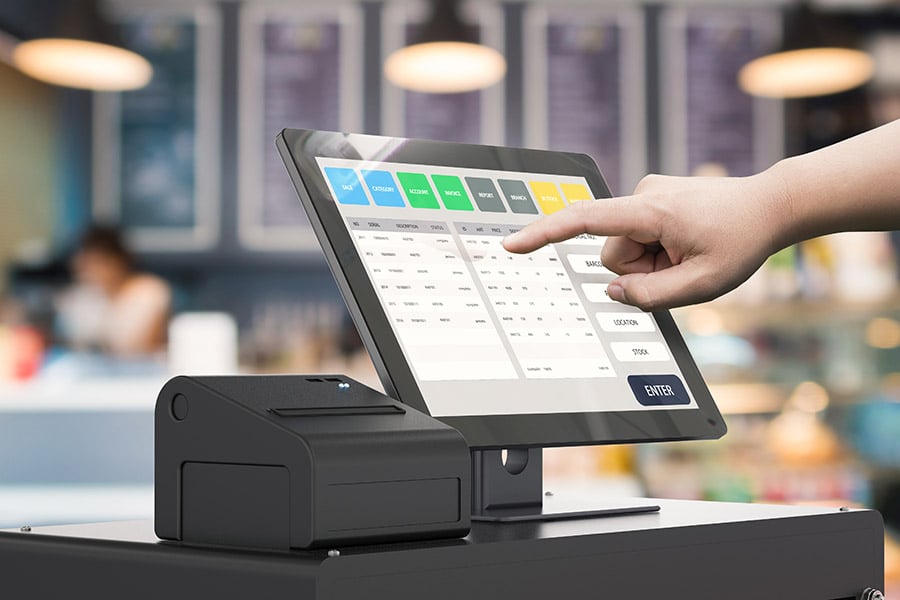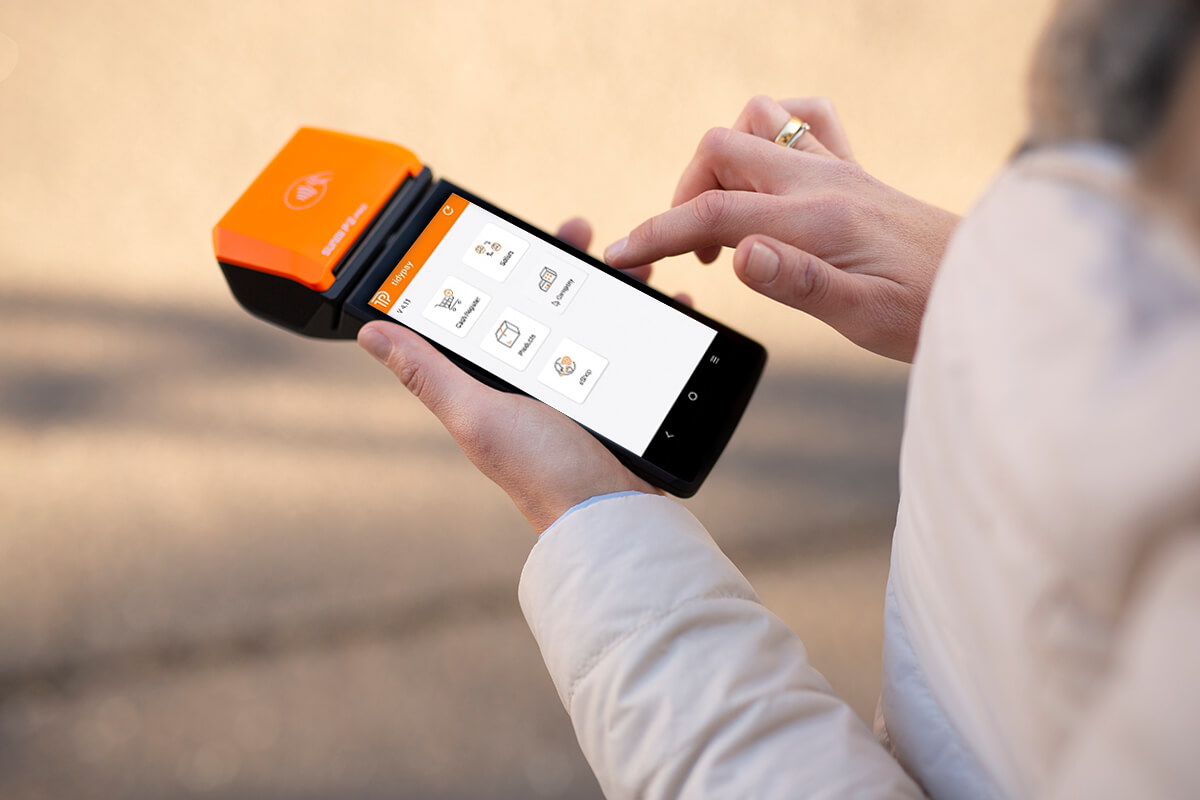5 Simple Techniques For Pos System For Small Business
5 Simple Techniques For Pos System For Small Business
Blog Article
Pos Systems Fundamentals Explained

Point of Sale Systems: Retail Point-Of-Sale Solutions Streamline Transactions
The Best Strategy To Use For Restaurant Pos

Hardware Components of a Point of Sale System What makes a POS system tick? It's not just software application; the hardware plays a starring function. Consider it as the body to the software application's brain. Without the right hardware, even the most advanced POS software is just a pretty face. Important POS Hardware So, what are the must-haves? Let's break it down. The main processing system, typically a computer or tablet, is the heart of the operation. The display or touchscreen display permits personnel to engage with the system. A barcode scanner speeds up the checkout process. Keep in mind the days of manually getting in each code? The reliable receipt printer provides consumers with a record of their purchase. A money drawer keeps your money safe and arranged. A card reader allows clients to pay with credit or debit cards. Diving Deeper: Beyond the Basics However wait, there's more! Depending on your service, you might require customized hardware. For example, a restaurant might integrate kitchen area printers to relay orders, while a store might utilize label printers for product tagging. Ever wonder how your local pastry shop quickly prints those delicious-looking labels? Selecting the Right Hardware: A Balancing Act Choosing the right hardware isn't almost purchasing the most expensive equipment. It's about discovering the sweet area more info between performance, sturdiness, and budget plan. A small service simply starting may go with a more fundamental setup, while a high-volume seller will need robust, high-performance devices. Is it better to buy brand-new or utilized? Consider your choices carefully. A new system uses the newest technology and warranty security, but a reconditioned system can conserve you cash. The Future of POS Hardware What does the future hold? Anticipate to see even more combination with mobile phones, biometric scanners for staff member authentication, and advanced analytics control panels showed on bigger, clearer screens. Picture a world where stock is automatically upgraded in real-time as products are scanned-- a world where you can track your very popular product from anywhere in the world. The possibilities are unlimited, and the hardware is continually progressing to satisfy the needs of today's services. Are you prepared to update your point of sale system?
Software Application Features and Capabilities: The Heart of Your POS System
Ever watch a skilled barista slide through a hectic morning rush? Their secret isn't just caffeine; it's a seamless dance with their POS system. The software is the conductor of your service symphony, orchestrating everything from sales to inventory. However what notes should you be listening for? What abilities genuinely matter in today's market?
Inventory Management: Beyond Counting Beans
Forget spreadsheets that haunt your dreams. Modern POS systems offer real-time inventory tracking, informing you when your stock of artisanal coffee beans dips precariously low. Think about it as a digital guardian angel, preventing those uncomfortable "Sorry, we're out!" minutes to consumers. What if you could also predict need based on historical information? Numerous systems now offer forecasting tools, an effective weapon versus overstocking and lost sales. This assists avoid the situation of running out of popular items or building up excess stock of slow-moving products, both of which can constrain money flow and area.
Sales Reporting and Analytics: Decoding the Information
Sales information is the new gold, and your POS system is the miner. Forget simply knowing just how much you sold today. Dive deep into the information to discover patterns, determine your very popular items, and understand consumer behavior. Which menu product pairs perfectly with the everyday special? Which promotion resonated most with your customers? These insights are not simply interesting; they're actionable intelligence. Without trusted sales reporting, navigating the intricacies of company decision-making ends up being like cruising without a compass, increasing the opportunity of missteps and missed out on opportunities.
Client Relationship Management (CRM): Building Bridges, Not Walls
Keeping in mind a regular customer's name and favorite order is charming, but scaling that personal touch is difficult. POS systems with CRM abilities allow you to track consumer purchase history, choices, and even birthdays. Imagine instantly providing a discount rate on their birthday-- a small gesture that promotes loyalty and motivates repeat service. There is the prospective snag of poor information quality, which can lead to inaccurate customer profiles and ineffective marketing efforts.
Payment Processing: Enhancing the Deal
The checkout experience can make or break a sale. Seamless integration with various payment methods-- charge card, mobile wallets, even copyright-- is non-negotiable. Can your system handle split payments? Does it use safe and secure tokenization to safeguard client data? A clunky payment process resembles striking a sour note in your business symphony, possibly disrupting the entire performance. Guaranteeing compatibility with developing payment innovations and adherence to security standards are paramount for maintaining consumer trust and functional effectiveness.
Staff Member Management: Keeping the Team in Sync
From clocking in and out to managing approvals and tracking performance, worker management features enhance operations and improve responsibility. Is scheduling a problem? Numerous POS systems use incorporated scheduling tools, optimizing staffing levels based upon anticipated need. A typical obstacle that is typically neglected is the obstacle of incorporating employee management performances with payroll systems, which can lead to errors and inefficiencies in wage estimations.
Advanced Characteristics: Leveling Up Your Operations
- Table Management: Ideal for restaurants, this feature allows you to envision your dining-room, track table status, and handle appointments.
- Loyalty Programs: Reward your finest clients and motivate repeat company with integrated loyalty programs.
- Online Ordering Combination: Flawlessly incorporate your POS system with online buying platforms to broaden your reach.
Selecting the right POS system is about more than just performance; it has to do with finding a partner that can grow with your company. Consider your existing requirements, expect future development, and do not be scared to ask the hard questions. The ideal software application can change your business from a disorderly cacophony into an unified masterpiece.
Industry-Specific POS System Applications
Think about the local pastry shop, dynamic with morning customers craving fresh croissants. A generic POS system might manage deals, but can it handle complicated dishes, track component inventory, or automatically change production schedules based on sales information? Most likely not. That is where the beauty of industry-specific POS systems shines.
Restaurants and Hospitality
For dynamic dining establishments, speed and precision are vital. How many times have you seen servers handling orders, modifications, and splitting costs, all while trying to offer excellent service? A dining establishment POS system simplifies these processes, permitting table management, cooking area order tickets, and even online purchasing combination. These systems often include functions like ingredient-level inventory tracking, important for managing food costs and minimizing waste. Ever wonder why your preferred meal is in some cases not available? It might stem from a lack of appropriate stock management.
- Table Management
- Kitchen Area Order Tickets
- Online Ordering Integration
- Ingredient-Level Stock Tracking
Retail Solutions
Retail, with its varied inventory and client interactions, demands a various set of tools. Envision a boutique clothes shop having a hard time to track sizes, colors, and seasonal collections utilizing a standard checkout system. An industry-specific retail POS system provides functions like barcode scanning, customer commitment programs, and comprehensive sales reporting. These systems can even integrate with e-commerce platforms, supplying a seamless omnichannel experience for consumers. Did you know some retail POS systems can anticipate future sales trends based upon historical data? Now that is powerful!
The Perils of an Inequality
Choosing the incorrect POS system can create substantial operational difficulties. A clothes boutique utilizing a dining establishment POS, for example, would find it unsuitable for managing inventory with sizes and colors. The absence of proper reporting and analytics might lead to mistaken purchasing choices and lost earnings. The result might be similar to attempting to fit a square peg in a round hole.
Secret Considerations
Choosing an industry-specific POS system requires careful evaluation. Think of your service's unique requirements and operational workflows. Does the system integrate with existing software? Does it offer the necessary reporting abilities? Is it scalable to accommodate future growth? A well-chosen POS system is not just a deal tool; it's a tactical property that can drive efficiency, enhance consumer fulfillment, and ultimately, improve your bottom line. Remember, it is a financial investment in your organization's future, not just an expense.
Security Considerations for Point of Sale Systems
Ever heard the tale of the mom-and-pop store that lost everything since of a single, overlooked security defect in their POS system!.?. !? It's a cautionary tale, and it highlights a vital element typically eclipsed by the allure of elegant functions and structured operations. The truth is, a POS system is just as good as its security. What great is a system that crunches numbers in a flash if it allows criminals to swipe customer's data simply as quickly?
The Vulnerability Minefield
The digital landscape is a battlefield. Every POS system, no matter size or elegance, is a potential target. Are you really got ready for the threats hiding around the corner? The real pinch comes when you discover that your out-of-date software has a gaping hole that hackers can exploit, turning your organization into an unwitting accomplice in identity theft. The trouble is that hackers are crafty and are always altering their techniques.
Common Security Gaps and Expert Tips
- Weak Passwords: "Password123" isn't sufficing. Usage strong, unique passwords for all POS system accounts and change them regularly. Two-factor authentication is a must.
- Unsecured Networks: Your Wi-Fi is like leaving the front door open. Protect your network with strong encryption (WPA3 if possible) and think about a different network for your POS system.
- Out-of-date Software: Software application suppliers patch security holes all the time. Failing to upgrade is like welcoming difficulty. Set up automatic updates or schedule regular maintenance.
- Worker Training: Your staff is your first line of defense. Train them to acknowledge phishing efforts, protect passwords, and report suspicious activity.
Information File Encryption: Your Shield Against the Dark Arts
Think about data file encryption as a secret code. It scrambles delicate information, like credit card numbers, making it unreadable to unauthorized users. Without file encryption, your clients' financial details are like sitting ducks, ripe for the picking by cybercriminals. It's not practically safeguarding your clients; it's about safeguarding your track record and avoiding substantial fines.
PCI Compliance: The Rulebook You Can't Disregard
If you accept credit cards, you're bound by the Payment Card Industry Data Security Requirement (PCI DSS) It's a set of security requirements created to secure cardholder information. Stopping working to comply can result in fines, penalties, and even the loss of your ability to process charge card payments. It's a headache, yes, however it's an essential one. Think about PCI compliance as the expense of doing company in the digital age.
Consider this: every deal processed through your point of sale is a potential entry point for destructive stars. By executing robust security steps, you're not simply protecting your organization; you're protecting your clients' trust and ensuring the long-lasting practicality of your operations. The security of your POS system isn't simply a technical issue; it's a business vital. It needs continuous caution, proactive procedures, and a dedication to remaining ahead of the curve.